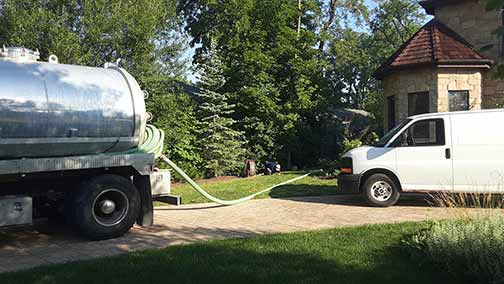
In the state of Illinois, homeowners with septic systems are responsible for the regular maintenance and care of their septic tanks. This is an important responsibility that ensures the proper functioning and longevity of the septic system, as well as protects the environment and public health. Understanding the maintenance requirements and knowing who is responsible for the upkeep of a septic tank is crucial for homeowners in Illinois.
The Importance of Septic Tank Maintenance
Maintaining a septic tank is essential for several reasons. Firstly, regular maintenance helps prevent costly repairs and extends the lifespan of the septic system. By conducting routine inspections and pumping out the septic tank when necessary, homeowners can identify and address any issues before they escalate into major problems. Neglecting maintenance can lead to septic system failures, which are not only expensive to fix but can also pose health risks and cause environmental contamination.
Secondly, proper septic tank maintenance contributes to the protection of the environment. A well-maintained septic system ensures that wastewater is effectively treated and does not contaminate groundwater or nearby bodies of water. This is particularly important for areas where there is no access to a centralized sewer system. By properly maintaining their septic tanks, homeowners in Illinois can play a role in preserving the quality of the state’s water resources.
Responsibility for Septic Tank Maintenance
In Illinois, the responsibility for septic tank maintenance lies with the property owner. Whether you live in a single-family home, a duplex, or a multi-unit building, it is the homeowner’s duty to ensure proper care, maintenance, and inspections of their septic system. This includes regular pumping of the septic tank, as recommended by professionals, and promptly addressing any issues that may arise.
As a homeowner, it is essential to familiarize yourself with the specific guidelines and regulations set forth by the Illinois Department of Public Health (IDPH) regarding septic tank maintenance. These guidelines outline the recommended inspection and pumping frequency, as well as the proper disposal of septic waste. Adhering to these guidelines not only fulfills your legal obligations but also helps maintain the functionality of your septic system.
Working with Professionals
While homeowners are responsible for septic tank maintenance, it is often recommended to seek the assistance of professionals in the field. Septic system professionals have the knowledge, expertise, and specialized equipment necessary for thorough inspections, proper maintenance, and repairs. They can help ensure that your septic system is functioning optimally and identify any potential issues early on.
When choosing a professional septic system service provider in Illinois, it is important to consider their experience, qualifications, and reputation. Look for companies that are licensed, insured, and have a proven track record of providing reliable septic system maintenance services. Reading reviews and asking for recommendations from friends, neighbors, or local authorities can also help you find reputable professionals in your area.

Regular pumping of the septic tank is also necessary to remove accumulated solids and prevent the tank from reaching maximum capacity, which can lead to system failure.
Regular Inspections and Pumping
According to the guidelines provided by the IDPH, homeowners in Illinois should have their septic tanks inspected at least once every three years. However, depending on the size of the household, the septic tank’s capacity, and the usage, more frequent inspections and pumping may be required. It is advisable to speak with a professional to determine the appropriate frequency for your specific septic system.
During an inspection, a septic system professional will assess the condition of the tank, check for any signs of leakage or damage, and ensure that the components are functioning as they should. If any issues are identified, they can provide recommendations for repairs or further actions to rectify the problem. Regular pumping of the septic tank is also necessary to remove accumulated solids and prevent the tank from reaching maximum capacity, which can lead to system failure.
Proper Waste Disposal
In addition to regular inspections and pumping, homeowners in Illinois must also adhere to proper septic waste disposal practices. It is crucial to avoid flushing non-biodegradable materials, chemicals, or excessive amounts of grease, as these can clog the system and disrupt the natural treatment process. Additionally, all septic waste should be disposed of in a manner compliant with local regulations.
Some Illinois counties may have specific requirements for septic waste disposal, such as utilizing approved waste haulers or treatment facilities. Homeowners should familiarize themselves with these regulations to ensure they are responsibly disposing of their septic waste. Failing to comply with these regulations not only poses environmental risks but may also result in legal consequences.
In Summary
Maintaining a septic tank is a critical responsibility for homeowners in Illinois. By prioritizing regular inspections, pumping, and following proper waste disposal practices, homeowners can ensure the longevity and proper functioning of their septic systems. Taking care of your septic tank not only protects your property and the environment but also contributes to the overall well-being of your community. Remember to speak with professionals and stay informed about the guidelines provided by the Illinois Department of Public Health to fulfill your obligations as a responsible homeowner.